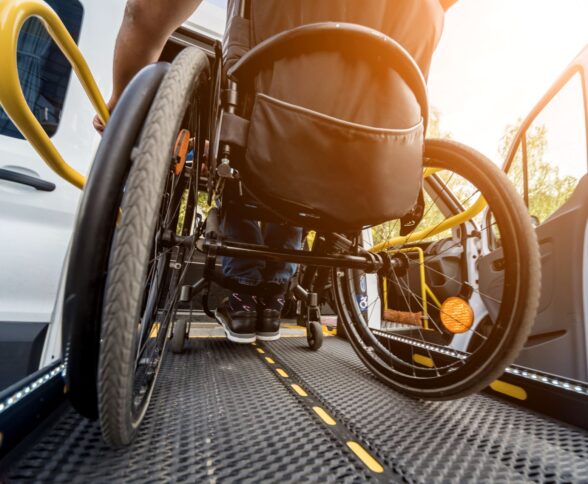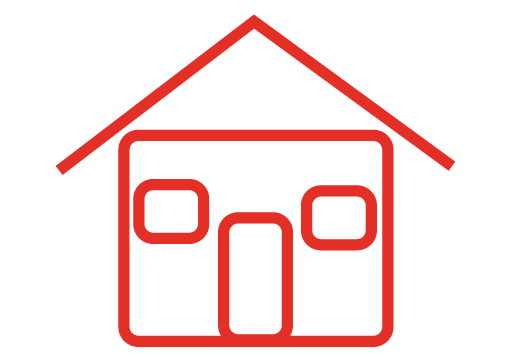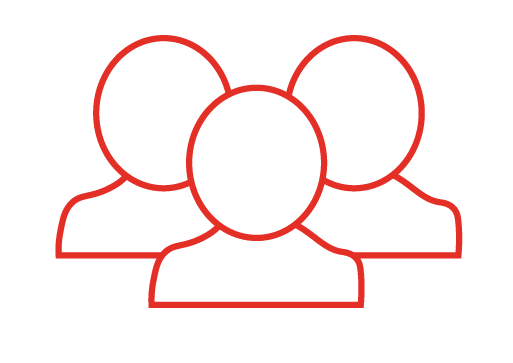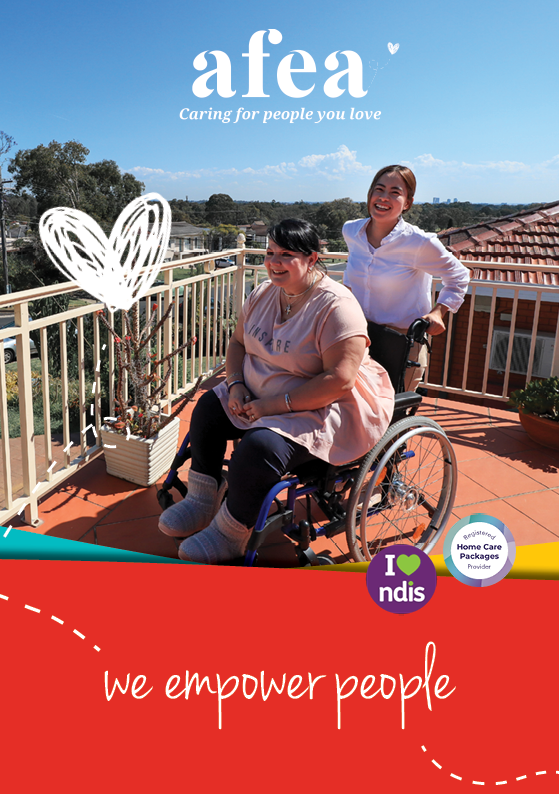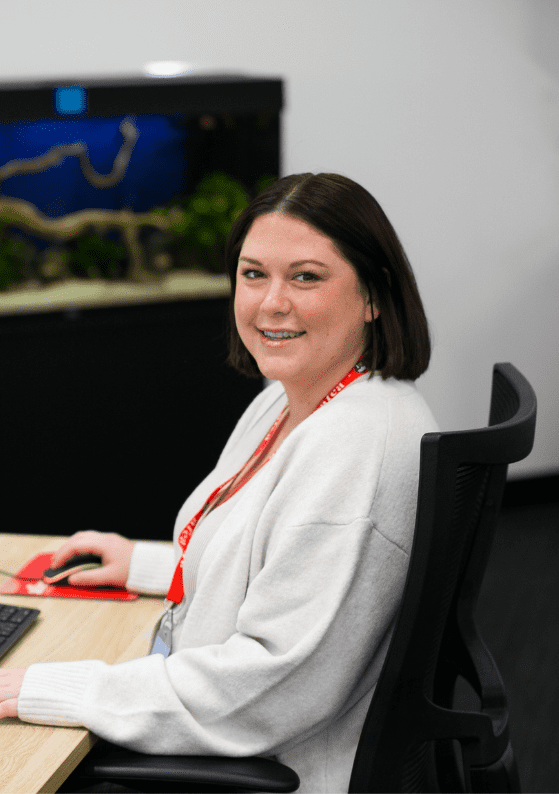Augmentative and alternative communication (AAC) is used to describe methods or devices used to supplement (augmentative) or replace (alternative) speech.
If you’re in the NDIS and dealing with communication challenges, you may have heard AAC mentioned by an occupational therapist, speech pathologist or your NDIA Planner.
Let’s dive in to learn more.
The two As of AAC
When we ‘augment’ something, it means we’re supplementing it or adding something to it.
Augmentative communication is when you add something to your speech so you can express yourself better.
Examples include:
- Sign Language, e.g. Auslan
- Letter or symbol boards
- Communication books
- Alphabet charts
- Informal communication aids, e.g. movements, gestures or facial expressions
Alternative communication is used when you are unable to speak, or when your speech is not easily understood by your listeners. In this case, you can find different ways to communicate.
Examples include:
- Speech-generating devices
- AAC apps on mobile devices
Who uses augmentative and alternative communication?
According to Speech Pathology Australia, people who use AAC include people who have
- Autism
- Intellectual disability
- Motor difficulties, e.g. cerebral palsy or muscular dystrophy
- Stroke or other neurological conditions
Using AAC can be a long-term solution, or it can be used only for a short time, for example, following surgery.
What types of AAC are used?
Unaided AAC does not require physical aids or tools, e.g. signing, gestures or body movements
Aided AAC requires tools or materials, e.g. speech-generating devices, photos or apps
Text-based AAC systems are systems that use a keyboard and require the user to type the words they want to say. This is helpful for people who can read and write.
Symbol-based AAC systems are for users who cannot read or write. They need visual symbols that represent the things they want to express. For example, a symbol-based AAC would have symbols for “food” or “help” or a question mark to mean “ask a question”.
Some AAC systems may need to be personalised to suit your needs. You can speak to a speech pathologist to explore different systems. Speech pathologists have the expertise to help you find the right AAC for you. They can also teach you how to use it, and teach your family and friends some methods to support your communication needs better.
What are the benefits of AAC?
Communication is a fundamental human right. Everyone, regardless of ability, has the right to express their needs and participate in decision-making regarding their life and care.
If you are unable to adequately express yourself, you may feel isolated, lonely and lack confidence to advocate for your own needs.
Using AAC has many benefits, including
- Better social connections
- Deeper personal relationships
- Increased independence
- Improved mental health
- Improved accuracy in communication, especially with healthcare professionals
One of our clients, Sid, even used AAC to write a book and share his experience. Watch our interview with him to see AAC in action.
How do you get AAC using your NDIS funding?
Core – Consumables
Under Core – Consumables, you can purchase everyday items valued at up to $1,500. Most of these items you can readily buy off the shelf at your local chemist, supermarket and even online, but remember that you can only use your consumables budget on items directly related to your disability.
There are low risk communication aids that cost less than $1,500, so you can use your Consumables budget to pay for them.
For NDIS consumables, you’ll most likely need to pay first and then make a claim with your NDIS funding so you can be reimbursed.
If you are self-managing your NDIS funding, you will be responsible for making this claim. If you have a plan manager, they can assist you.
It’s best to speak to your LAC, support coordinator or plan manager first before making the purchase, as you need to meet the NDIS funding criteria. You also want to make sure you have enough funds to cover the cost of the item.
Capital – Assistive Technology
The Assistive Technology budget under your Capital funding can be used for items that can improve your mobility, communication or inclusion.
Mid to high cost assistive technology falls under Capital.
- Mid cost – $1,500 to $15,000
- High cost – $15,000 and up
Some complex communication devices can cost $15,000 or more. For these high cost items, you would need an individual assessment from an AT advisor (e.g. an allied health practitioner) and a quote for the AT proposed. You will need to present these to the NDIA.
Capacity Building
The NDIA knows that you need help from a specialist to find the AAC you need. If you have AT in your plan, you will also have at least $500 included in your Capacity Building – Improved Daily Living budget to seek advice from an independent advisor about your AT requirements.
You don’t need a quote for items that cost less than $15,000.
Once you’ve provided all the evidence, the NDIA is required to make a decision about low and mid cost assistive technology funding within 28 days, and within 50 days if it’s high cost.
If you don’t have enough funding under Core, or if you don’t have AT included in your plan, you may need to speak to the NDIA and request a plan reassessment.
Learn more about AAC with the help of Afea
We hope this serves as a good starting point for you in exploring augmentative and alternative communication systems. Afea’s Plan Management and Support Coordination teams are experts in navigating the NDIS. Reach out to us for a chat by calling 1300 65 11 33 or by filling out our form.





